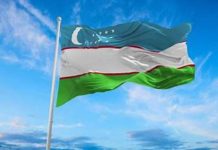Qamar Bashir
Why was the government so desperate to push through half-baked, poorly conceived constitutional amendments, cloaked in mystery and secrecy, despite knowing that constitutional amendments are akin to rewriting the social contract? Such amendments should have evolved from a well-thought-out process, starting in schools and universities, developed through think tanks, analysts, and thinkers, backed by thorough research and detailed surveys. These drafts should have been shared with both private and public stakeholders, carefully examined by the National Assembly and Senate committees, and then debated thoroughly in both houses of parliament, under full media coverage, ensuring transparency at every stage.
However, in a strange and unconventional manner, these amendments—still shrouded in secrecy—were pushed forward aggressively. Members of parliament were gathered like herds of goats and cattle, treated as mere numbers rather than representatives. Most members knew little to nothing about the content of the amendments but were still prepared to cast their votes in favor.
The haste and urgency behind these amendments must have been driven by some compelling reasons, possibly a matter of life and death for the proposers and seconders—far more significant than the image of the country, the economy, or the will and consent of the 250 million people of the nation. This urgency, along with bypassing the conventional legislative process, suggests several potential motives for the government.
The amendments could be aimed at centralizing power, weakening opposition forces, or ensuring control over key institutions such as the judiciary and the Election Commission. This might involve creating legal frameworks that legitimize the extension of executive authority, increased military involvement in civilian affairs, or altering election rules to secure favorable outcomes.
In one scenario, the government could assume powers to appoint the Chief Justices of the Supreme Court and High Courts, reduce their tenure to three years, hold them accountable for their performance, and write their annual confidential reports. Additionally, the government could gain authority to transfer and post superior court judges. Such amendments would effectively end judicial independence, placing judges under the complete control of the government and reducing them to political tools, much like civil servants who have been turned into pawns of the government and establishment.
The government may have felt threatened by the Supreme Court’s decision to restore PTI and allow independent candidates to join the party, which would potentially undo efforts to marginalize PTI. This verdict could have shifted the balance of power back in favor of PTI, threatening the political dominance of the ruling coalition. The amendments could have aimed at preventing the PTI from regaining its full political strength leading to reconfiguring the Election 2024 results on the basis of form 45 or holding new elections which could have catapulted the PTI as a major political player. Only this aspect was tied to political survival of the ruling elite.
The amendments could have sought to provide constitutional cover to the composition of election tribunals, which now include retired judges or individuals such as lawyers, who could be appointed as tribunal judges. This could empower the government to apply the Election Act 2024 retrospectively, allowing it to be implemented for Election 2024. As a result, the election tribunals, which were constitutionally mandated to finalize complaints within six months of the election date, would only begin functioning eight months after the election, violating the constitutional timeline. These tribunals would now operate under retired judges or lawyers handpicked by the government, who may endorse election results based on Form 47, which is a derivative of Form 45, making it more difficult to challenge the results, particularly for opposition parties like PTI.
The amendment could have been aimed Suppressing dissent or political opposition, restricting freedoms and limiting the opposition’s ability to function or protest. The ruling establishment could have strengthened its grip on power without or limited public accountability. The establishment may have sought to legitimize covert or extraordinary measures in the name of national security such as limiting judicial oversight of military actions or increasing the powers of intelligence agencies to maintain control or protecting vested interests outweighs the normal democratic process.
The government could have aimed to empower the army to conduct military trial of nominees of May-9 incident, to conduct military trial of Mr. Imran Khan and neutralized him for all political purposes, try civilians accused of terrorism and to give blanket approval to the military to deal with terrorists and anti-state elements bypassing the civilian judicial system. These amendments may have been an attempt to retroactively legitimize the military’s expanded role in civilian affairs, including its direct involvement in law enforcement, which might have otherwise been challenged in civilian courts particularly when such operations involved human rights violations or extrajudicial actions.
Furthermore, the amendments could have provided legal sanctity to the military’s increasing involvement in civilian sectors such as commerce, industry, transportation, manufacturing, agriculture (including large-scale corporate farming), banking, construction, and other vital civilian domains. By embedding the military’s role across these sectors through constitutional amendments, the government could have institutionalized military influence in areas traditionally under civilian control.
These amendments are also sometimes necessitated due to international pressures or commitments, whether from international organizations, foreign governments, or financial institutions like the IMF—require swift legal or policy reforms. Governments, in their desperation to meet these demands (often tied to loans, sanctions, or trade deals), may rush amendments without proper public discourse. In this scenario the amendments could have given further sanctity to the Independent Power Producers, provided legal and sovereign guarantees to the Rekhodek project and such other projects, empower the government to implement IMF’s conditionalities despite wider public outcry.
Without these amendments, the Election Commission would have no choice but to implement the Supreme Court’s majority decision, which would restore PTI as a political party, posing a formidable challenge to the government. The trial of May 9th nominees, including Imran Khan, in military courts would become almost impossible. Furthermore, the election tribunals would begin functioning, and if decisions were made based on Form 45, this government—precariously built on unstable grounds—would collapse like a house of cards. All the efforts made by the establishment to hold the government together would be in vain.
In the worst-case scenario, if PTI were to come into power based on Form 45, or if fresh elections were held, there is a strong likelihood that PTI would assume power with Imran Khan as Prime Minister. However, this outcome may remain elusive unless a series of factors—coincidentally or divinely—align with a common purpose to bring PTI back to power. Without such convergence, it would likely remain a distant dream.
Qamar Bashir
Former Press Secretary to the President
Former Press Minister to the Embassy of Pakistan to France
Former MD, SRBC, CEO, ATV

















